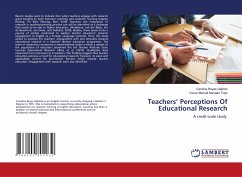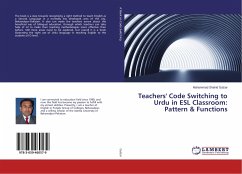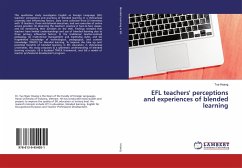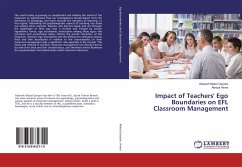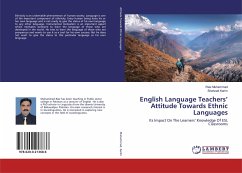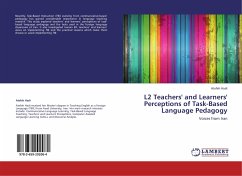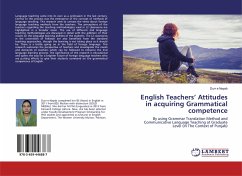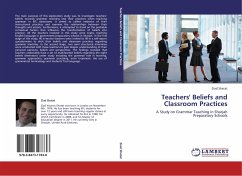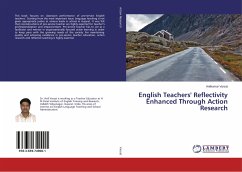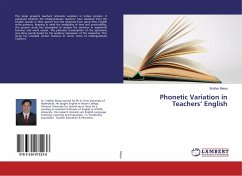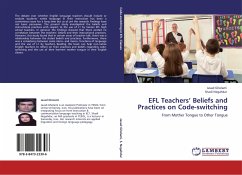
EFL Teachers' Beliefs and Practices on Code-switching
From Mother Tongue to Other Tongue
Versandkostenfrei!
Versandfertig in 6-10 Tagen
39,99 €
inkl. MwSt.

PAYBACK Punkte
20 °P sammeln!
The debate over whether English language teachers should include or exclude students native language in their instruction has been a contentious issue for a long time but as of yet the research findings have not been persuasive. The present study investigated the beliefs and instructional practices with respect to the use of L1 by Iranian EFL high school teachers. In general, the findings showed that there existed no correlation between the teachers beliefs and their instructional practices. However, this study found that in certain areas of teacher talk, there was a relationship between the s...
The debate over whether English language teachers should include or exclude students native language in their instruction has been a contentious issue for a long time but as of yet the research findings have not been persuasive. The present study investigated the beliefs and instructional practices with respect to the use of L1 by Iranian EFL high school teachers. In general, the findings showed that there existed no correlation between the teachers beliefs and their instructional practices. However, this study found that in certain areas of teacher talk, there was a relationship between the stated beliefs and practices. Furthermore, there was a consistency between some micro- and macro- functions of language and the use of L1 by teachers. Reading this book can help non-native English teachers to reflect on their practices and beliefs regarding code-switching and the use of their learners' mother tongue in their English classes.



